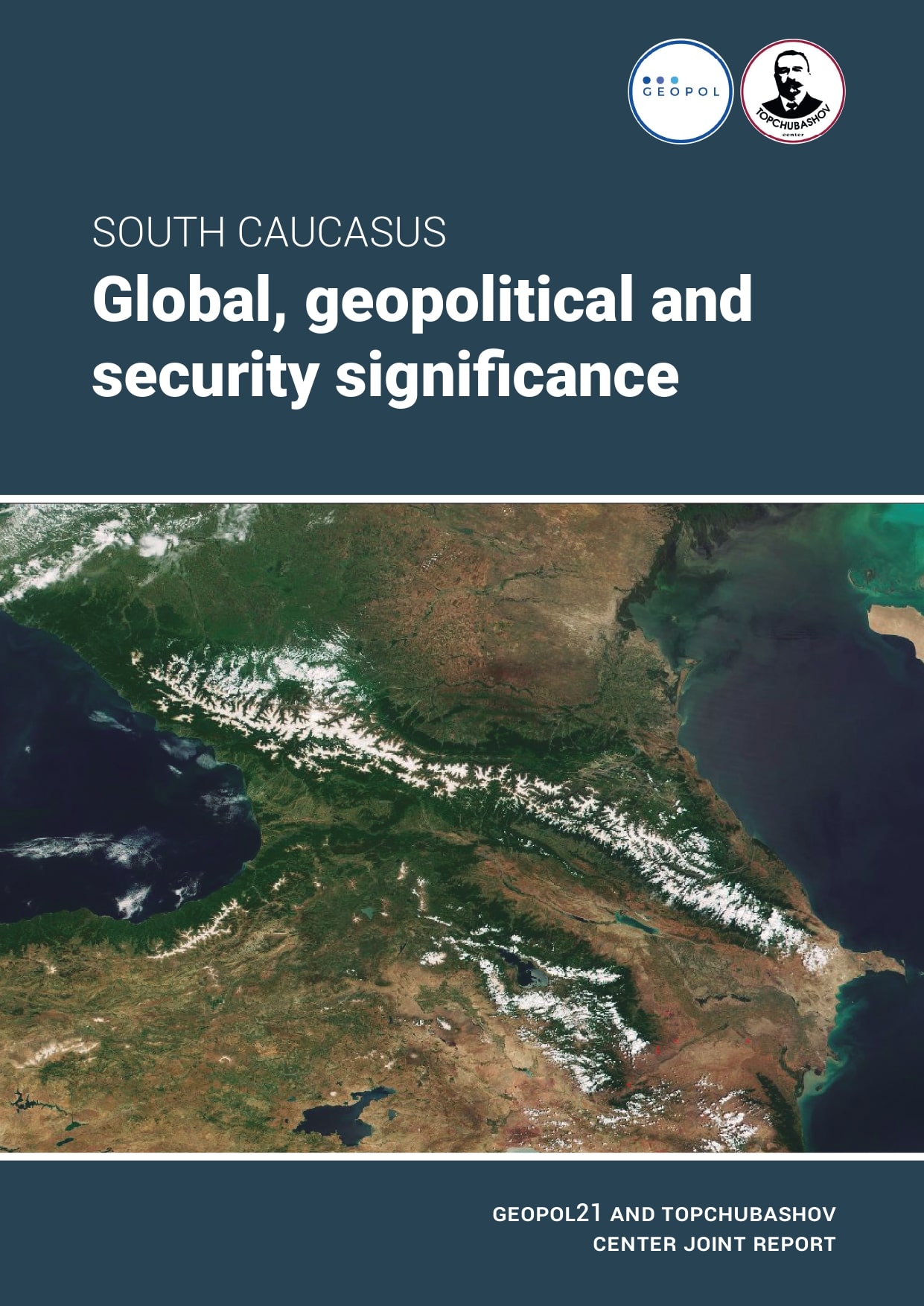
5 minute read
SOUTH CAUCASUS
While occupying a small area on the world map, the South Caucasus has traditionally played a crucial role in regional geopolitics. The region`s unique location at the crossroads of Asia, Europe and the Middle East has attracted interest, much bigger than its geographical size, from neighbouring and external powers.
For the international system the South Caucasus has acquired a special value since the collapse of the Soviet Union and (re)introduction of the significant oil and gas deposits of Azerbaijan and Central Asia to the world market. Since the early 1990s, the region has witnessed the transition of post-Soviet economies and related challenges, domestic instability and civil wars, bloody secessionist conflicts with their long-lasting effects (breakaway territories, displacement of hundreds of thousands of people, ghost towns) and other fateful episodes in its history. Despite the fragmentation and differences in their internal dynamics and foreign policy priorities, the three South Caucasus nations, Armenia, Azerbaijan, and Georgia, have managed to occasionally make headlines in international media.
The region has in recent years regained relevance due to the Second Karabakh War and its geopolitical repercussions, Russia’s invasion of Ukraine, and the (re)emerging opportunities for energy and connectivity mega-projects.
The South Caucasus offers not only a rich history , but also a colourful ethno-linguistic and religious landscape . The informative chapter by Shujaat Ahmadzada and Marcos Márquez on the turbulent past of the South Caucasus serves as an introduction to the further analysis and understanding of the region`s present day and perhaps tomorrow.
Bordering Russia to the north, Türkiye to the west, Iran to the south and with the European Union and the United States further afield, the South Caucasus is a region at the centre of Eurasian geopolitics . All the players named above have differing vested interests in the region, as Simona Scotti, Mikel Viteri and Marcos Márquez discuss in the second chapter covering regional geopolitics.
The South Caucasus’ strategic value, both to the regional countries and foreign nations, lies in its energy resources and its geographical location . Energy-rich Azerbaijan produces both oil and natural gas that it exports abroad, while Georgia provides the link westwards as a transit point. Both countries are becoming focal transit nations between China, Central Asia and Europe through the Middle Corridor . At a time of instability in the world’s energy supply as a result of the Russian invasion of Ukraine, the South Caucasus has emerged as a key player, becoming a source of energy resources as well as a transit corridor, as Mahammad Mammadov , Murad Muradov and Guillermo Revilla explore in the third chapter.
Security is a major component of the region’s politics. The Azerbaijani-Armenian conflict , including the dispute over the Karabakh region, has flared up on numerous occasions since before the collapse of the USSR. Each of the countries has different military capabilities and security partners, with Türkiye’s support of Azerbaijan in the latest episode of the war reflecting how an issue between neighbours has border implications. This, along with the Ukrainian war’ influence in the region, is covered by Rusif Huseynov , Jacobo Morillo and Murad Muradov .
One of the parties that has more closely interacted with Armenia, Azerbaijan and Georgia has been the European Union . Azerbaijan has been already providing gas, albeit in modest amounts, to Europe through different pipeline systems crossing Azerbaijan, Georgia and Türkiye before reaching the EU territory, prior to the Russian invasion of Ukraine. However, the war has boosted European demand for Azerbaijani gas. Oil is yet another, more traditional, commodity exported by Azerbaijan to the EU. But Brussels’ role in the South Caucasus is not limited to its interests in the Caspian energy resources. The EU has also been engaged as a force for good mediating between Armenia and Azerbaijan. Shujaat Ahmadzada and Ricardo Gómez write about the relations between the EU and the Caucasus.
The last chapter, prepared by Marcos Marquez, Murad Muradov and Simona Scotti, is dedicated to the Spanish interests in the region and reflects Spain ’s political and economic relations with Armenia, Azerbaijan and Georgia.
The South Caucasus has become a key region whose influence and impact is felt beyond the borders of Armenia, Azerbaijan and Georgia. Despite the ongoing conflict between Armenians and Azerbaijanis, and the changing political scene in Georgia, the region’s geopolitical importance stands out amid an unstable international situation. This is why our two centres decided to design this report in the hope of making the Spanish public better aware of the political realities of South Caucasus and drawing bridges between the two distant ends of Europe.




